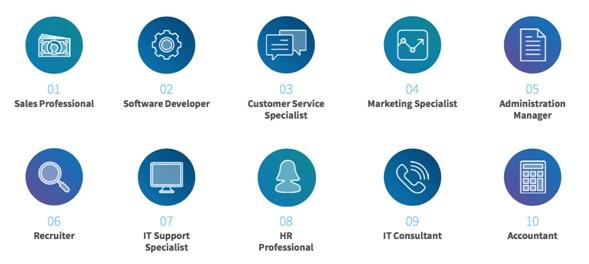BPO sector not just about to plateau amid AI integration

The business process outsourcing sector is about to plateau anytime soon in the advent of artificial intelligence, according to the Information Technology and Business Process Association of the Philippines (IBPAP).
IBPAP president and CEO Rey Untal said that the sector is poised to register a 9-percent growth in terms of revenues, despite the competition from AI.
“When we hit 2016, we were already 1.2 million in terms of employee base and when we looked at the future, accounting for several of the headwinds already—AI being one of them—we said that the forecast is that we are going to (see) revenue-wise in the 9-percent range and headcount-wise in the 8-percent range,” Untal told GMA News Online.
As technology evolves businesses need more people who understand and can utilize advancements in technology, thus new jobs are being created.
Benedict Hernandez, Accenture operations lead in the Philippines, said that while AI and automation will eliminate some jobs, such as those that are “routinized,” new roles are emerging and being created.
“So in our casing case, we can’t say we are eliminating jobs. The reality is we’re making the jobs richer and more interesting,” he said in a separate interview.
What the AI phenomenon is teaching the industry is that BPO workers must enhance and acquire new skills in order to cope with the fast-evolving technologies.
“They need to be familiar and quite interested in technology, because processes are being transformed by technology. They also need to enhance the main expertise in their respective industries. Lastly, they need to be constantly curious and learn new abilities because technology is really, really fast,” Hernandez noted.
Roadmap 2022
Untal said that the risks posed by AI were taken into consideration under the latest industry roadmap.
“That was already imputed in the Roadmap 2022. It’s because, when forecasted, the industry is big na, so 8 percent, 9 percent of a million is 100,000 pa rin,” he said.
Unveiled last year, Roadmap 2022 envisions the information technology and business process management (IT-BPM) sector to generate as much as $39 billion in revenues by 2022.
It also aims to capture 14 percent of the global market by that time, versus 11 percent in 2016.
But industry growth in the coming years would not be as fast as in 2010 to 2016 when the pace ranged from 14 to 17 percent.
“With the industry being new, there was novelty to it. But other than that, the scale and the size was much smaller,” Untal said.
The Philippines is among the countries leading global growth even if that growth is slower than the growth of its BPO sector.
“If you look at the global business ... the growth of the BPO is pegged at 4 to 5 percent. We’re still faster than the global industry,” Untal noted.
“The fact that it is growing globally means that the plateauing angle is not yet there,” he said.
Market value
The BPO industry was cited by Socioeconomic Planning Secretary Ernesto Pernia as among the major contributors to the 6.7-percent economic growth in 2017.
“We must note that a major contributing factor to this decline was miscellaneous services, which includes the BPO industry—business processing outsourcing,” Pernia said in January.
“We can take this as an indication that the current market profile of the BPO sector is ripe to move into higher value-added services,” the Cabinet official said.
For the IBPAP, the challenge is a push for including digitization at the academic level to prepare the future workforce.
“This is capability development, which we are driving as an association,” said Catherine Salceda-Ileto, IBPAP vice chair of the board of trustees.
“When we say capability building, it’s creating the workforce of the future, basically infusing all these subjects—data analytics, robotics, into the curriculum early on,” she said. —VDS, GMA News




